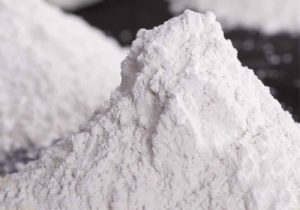
CP-992 Organophilic clay
CP-992 Organophilic Clay, the wet process improved viscosifier and gelling agent . It is a rapidly dispersing.
Bentonite Slurry: New Camp Shining Content Bentonite Slurry works great as a dispersant. For low aromatic, all mineral oil, and synthetic base fluids, our bentonite slurry is ideal. It has a high performance viscosifier that will aid in maintaining the smooth flow of your fluids. Additionally, it is simple to

CP-992 Organophilic Clay, the wet process improved viscosifier and gelling agent . It is a rapidly dispersing.

CP-982 Organophilic Clay is an amine treated bentonite with a moderate temperature performance.

CP-150 Organophilic Clay is a self-activating organoclay that disperses easily and performs well in diesel, low aromatic mineral oil, modified vegetable oil, and synthetic base fluid formulations.


CP-10 organoclay is a rheological additive made of organoclay. It is used in non-polar to moderately polar aliphatic and other solvent systems

CP-MPZ organoclays is an modified bentonite that is used in solvent and resin systems ranging from non-polar to highly polar.

The CP-MPS rheology modifier is a type of organo clay rheological additive that is used in solvent and resin systems ranging from non-polar to high polarity.
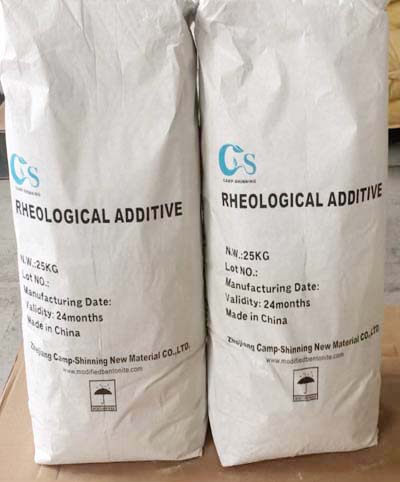
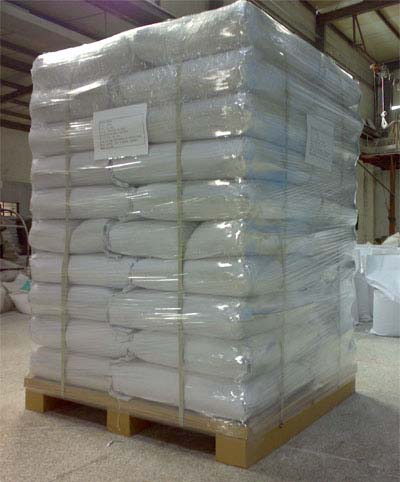
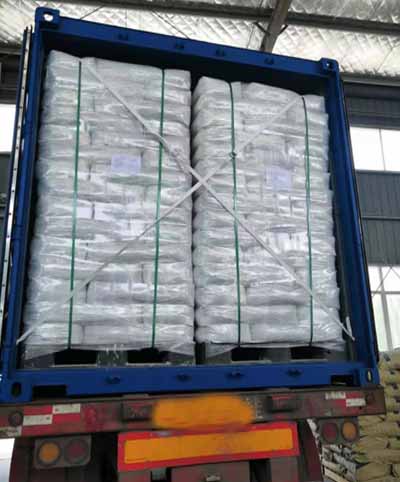
Organoclay Supplier / Manufacturer :
Internet address: https://www.rheologymodifiers.com/
Email address: [email protected]
Whatsapp / Wechat: +86-13185071071
Organophilic Clay Supplier / Manufacturer :

CP-EW Organoclay for Water Based paint. It is primarily employed in water borne paint systems,such as latex paint. So it is a good water based additive in paints,coatings,grease etc.

CP-EWS Modified bentonite It is employed in a water-borne coatings system. CP-EWS organoclay outperforms CP-EW in terms of thixotropy, transparence, and dispersion.

CP-WBS Rheology Modifier is rheological modified bentonite. It is mostly employed in water-borne systems.


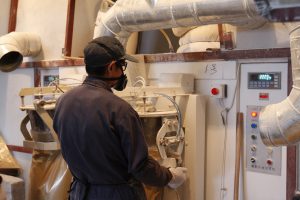
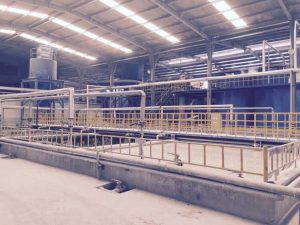

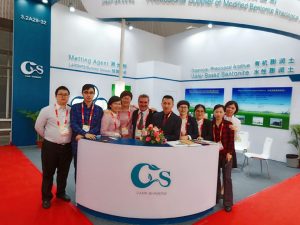
The Organoclay bentonite | Organophilic clay -specialized Zhejiang Camp-Shinning New Material CO.,LTD. and Hangzhou Camp-Shinning CO.,LTD. are subsidiaries of Camp-Shinning.
Camp-shinning concentrated on high value-added, high-technology organo bentonite series products, particularly in research, development, manufacturing, and sales of organic (solvent based organoclay) and inorganic bentonite (water based organoclay).
Our Organophilic bentonite clay finds widespread application in oil drilling mud, paint, coating, lubricating grease, adhesive, construction mortar, cosmetics, and waste water treatment, among other applications. A group of world-class professional users and distributors, such as SUN CHEMICAL,,SIEGWERK,LEHMANN &VOsS, and others, have acknowledged our dependable quality.
Current annual production of organic bentonite clay | organoclay is 20,000 metric tons, while refined bentonite production is 15,000 metric tons.
Our ISO 9001 quality system certification and IS014001 environmental management system certification, as well as our own mine with superior ore quality and production of proprietary technology, ensure the long-term quality and supply stability of our Organoclay bentonite | Organophilic clay.
Our mission is to provide users with superior Organoclay bentonite | Organophilic clay and services and to collaborate with them to achieve success and glory.
Internet address: https://www.rheologymodifiers.com/ and email address: [email protected]
Whatsapp / Wechat: +86-13185071071
Organoclay | Organophilic Clay CP-2 also named amine treated Bentonite.
In diesel oil based fluids,organophilic clay viscosifier CP-2 are used to increase carrying capacity and suspension properties, providing support for weight materials and improved cutting removal. Organophilic bentonite also aids in filter-cake formation and filtration control.
Properties
Composition Organically modified bentonite clay
Physical appearance Off white to tan free-flowing powder
Moisture content (105℃,2hr) ≤4%
Particle size (<76μm or 200mesh) ≥95%
Specific Gravity 1.6-1.8
Advantages
Effective viscosifier and gellant
Aids control of fluid loss to the formation
Increases emulsion stability
Improves cuttings carrying and hole cleaning capacity
Suspends weighting materials and other solids
Confers temperature stability to the fluid
Application
Base oil:
Diesel Oils
Crude Oils
Mineral Oils
Synthetic Oil
Viscosifying drilling Fluids:
Oil based drilling fluids
Invert emulsion fluids
Workover fluids
Completion fluids
Casing packs
Packer fluids
Spotting fluids
Package
Organoclay | Organophilic Clay CP-2 is packed in 50lb(22.7kg) or 25kg/bag or customized,multi-wall paper sacks or Kraft paper bag with PE liner or customized.
Storage
CP-2 Store in a dry, well-ventilated area with temperature of 0℃-30℃. Keep container closed. The quality guarantee period is 24 months.
Notice
The information on use is based on data which are believed reliable, but any recommendation or suggestion made is without guarantee or warranty, since the conditions of use are outside our control. All products are sold on the conditions that purchasers shall make their own tests to determine the suitability of such products for their purpose and that all risks are assumed by user. We disclaim any responsibility for damages resulting from careless or improper handling or use. Nothing herein is to be taken as permission, inducement or recommendation to practice any patented invention without a license.
Internet address: https://www.rheologicaladditive.com/ and email address: [email protected]
Whatsapp / Wechat: +86-13185071071
Bentonite Slurry This article discusses the chemical composition, molecular structure, and applications of organic-containing bentonite slurries. This clay’s unique chemical composition enables it to improve organic waste containment. The increased number of alkyl chains on the clay led to a larger interlayer space and a greater hydrophobicity, according to our findings. This increased the stability of the dispersion and decreased the effect of temperature changes on its rheological properties. The nature of organoclay dictates its sorption efficiency. It is dependent on the pollutant type, pH level, and contact time. Organoclays Bentonite Slurry have a high adsorption capacity and a large specific surface area. This type of clay is hydrophobic, but cationic surfactants alter these characteristics. This increases the capacity for absorption. Organoclay is utilized extensively for the remediation of heavy metals, organic compounds, and pesticides. Composition Organophilic clay Bentonite Slurry compositions can be made by combining clay with organic ammonium salts. Organic modification of inexpensive natural materials such as clays can increase their sorption capacity. Although clays are typically cationic, organic radicals can easily replace them. Organic modification of clays is a common technique for enhancing their capacity to absorb organic pollutants. Bentonite Slurry is an organophilic clay that can be dispersed without the use of dispersing agents in demineralized water. The addition of diluted mineral acid improves its cationic properties. Bentonite and quaternary ammonium compounds are both soluble in hot water. Organophilic clays exhibit excellent adsorption properties when used in slurries and can be used as a substitute for chemically modified clays. Additionally, they do not increase the viscosity of an aqueous medium. The organophilic clay gelant can be used for a variety of purposes. Organophilic clays, for instance, can be utilized as thickening agents in mineral oils. Organophilic clays are frequently used for this purpose in mineral oils, oil-based drilling muds, and paints. While bentonite is the most common clay used as a barrier material, other clays are also employed. Organic modifications influence the geotechnical properties of clays as well. Organic clays can be incorporated into containment systems. Extensive research has been conducted on the influence of organic modification on vital geotechnical properties. Using a sodium compound, the clay slurry can be converted into an organophilic clay composition. The sodium compound may consist of either sodium carbonate or sodium hydroxide. Organophilic clays are frequently employed to separate the oil phase from the water phase. This is particularly beneficial for automotive paint shops. The solids in the suspension of organophilic clay are then removed with water. Alternately, organophilic clays may be activated through the addition of a wetting agent or stabilizer. Organoclay’s rheological properties are crucial for their practical applications. It is essential to validate the intercalation of surfactants into the structure of clay particles following the synthesis of organoclay. Various characterization techniques have been applied to original and modified clays for this purpose. Cation exchange is the most prevalent technique for preparing organoclay materials. Application In the past, a number of researchers have attempted to enhance the application of bentonite slurry by incorporating additional processing steps and additives. However, this method is problematic due to the higher solids content of the resulting slurries, which can have a negative impact on their subsequent use. Utilizing readily available fluidizing agents will ensure the safety and cost-effectiveness of this process. In addition, the degree of organic modification depends on the cation exchange capacity of the clays. Clays with a greater than 50% organic content are difficult to filter, dry, and mill. This is a significant disadvantage of using such compounds. Organophilic clays are also utilized as rheology control agents in printing inks and lubricating greases. At room temperature, propylene carbonate is a liquid with a boiling point. Depending on the application, the optimal slurry would have low viscosity, good flowability, and good drainage rate. Ideal for rheological applications would be a Bentonite Slurry containing 5% solids. If the slurry is to be used in the production of paper, it should have a low viscosity. A non-aqueous fluidizing agent can be used to create a bentonite slurry that is pumpable. This non-aqueous fluidizing agent is comprised of at least 95% saturated hydrocarbon oil. The final bentonite solids content must exceed 50 percent.
Organoclay Supplier / Manufacturer :
Internet address: https://www.rheologymodifiers.com/
Email address: [email protected]
Whatsapp / Wechat: +86-13185071071
Organophilic Clay Supplier / Manufacturer :

CP-180 organoclay is an organo clay rheological additive (modified montmorillonite) designed specifically for use in solvent-based systems

CP-34 organoclay is a modified bentonite that has been specifically designed for use in solvent-based systems.

CP-EDS modified bentonite is a kind of organo clay rheological additive. It is used in systems of medium polarity and high polarity system.
Bentonite Slurry